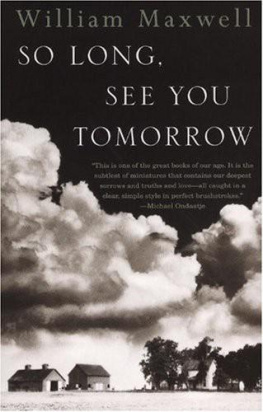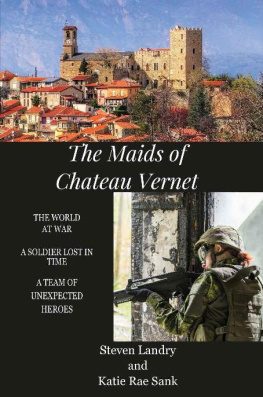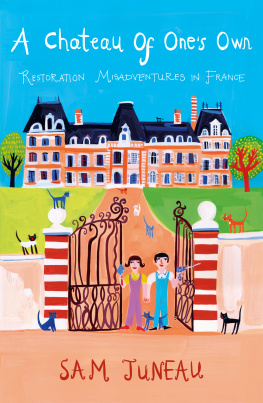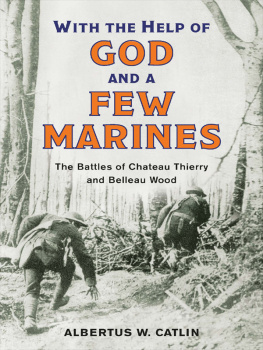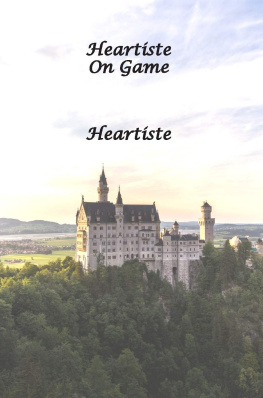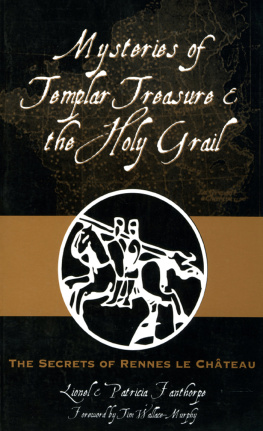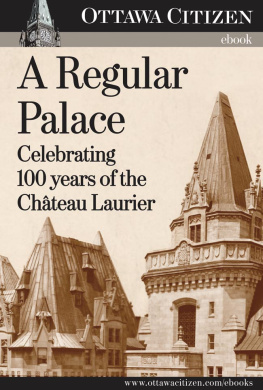William Maxwell - The Chateau
Here you can read online William Maxwell - The Chateau full text of the book (entire story) in english for free. Download pdf and epub, get meaning, cover and reviews about this ebook. year: 2012, publisher: Vintage, genre: Prose. Description of the work, (preface) as well as reviews are available. Best literature library LitArk.com created for fans of good reading and offers a wide selection of genres:
Romance novel
Science fiction
Adventure
Detective
Science
History
Home and family
Prose
Art
Politics
Computer
Non-fiction
Religion
Business
Children
Humor
Choose a favorite category and find really read worthwhile books. Enjoy immersion in the world of imagination, feel the emotions of the characters or learn something new for yourself, make an fascinating discovery.
- Book:The Chateau
- Author:
- Publisher:Vintage
- Genre:
- Year:2012
- Rating:3 / 5
- Favourites:Add to favourites
- Your mark:
- 60
- 1
- 2
- 3
- 4
- 5
The Chateau: summary, description and annotation
We offer to read an annotation, description, summary or preface (depends on what the author of the book "The Chateau" wrote himself). If you haven't found the necessary information about the book — write in the comments, we will try to find it.
The Chateau — read online for free the complete book (whole text) full work
Below is the text of the book, divided by pages. System saving the place of the last page read, allows you to conveniently read the book "The Chateau" online for free, without having to search again every time where you left off. Put a bookmark, and you can go to the page where you finished reading at any time.
Font size:
Interval:
Bookmark:
William Maxwell
The Chateau

wherever one looks twice there is some mystery.
ELIZABETH BOWEN, A World of LoveAnd there stand those stupid languages, helpless as two bridges that go over the same river side by side but are separated from each other by an abyss. It is a mere bagatelle, an accident, and yet it separates.
RAINER MARIA RILKE, letter to his wife, September 2, 1902, from Parisa chestnut that we find, a stone, a shell in the gravel, everything speaks as though it had been in the wilderness and had meditated and fasted. And we have almost nothing to do but listen.
RILKE, letter to his friend Arthur Holitscher, December 13, 1905, from Meudon-Val-FleuryPart I. LEO AND VIRGO
Chapter 1
THE BIG OCEAN LINER, snow white, with two red and black slanting funnels, lay at anchor, attracting sea gulls. The sea was calm, the lens of the sky was set at infinity. The coastlinelow green hills and the dim outlines of stone houses lying in pockets of mistwas in three pale French colors, a brocade borrowed from some museum. The pink was daybreak. So beautiful, and no one to see it.
And on C Deck: Something had happened but what he did not know, and it might be years before he found out, and then it might be too late to do anything about it. Something was wrong, but it was more than the mechanism of dreaming could cope with. His eyelids opened and he saw that he was on shipboard, and what was wrong was that he was not being lifted by the berth under him or cradled unpleasantly from side to side. He listened. The ships engines had stopped. The straining and creaking of the plywood walls had given way to an immense silence. He sat up and looked through the porthole and there it was, across the open water, a fact, in plain sight, a real place, a part of him because he could say he had seen it. The pink light was spreading, in the sky and on the water. Cherbourg was hidden behind a long stone breakwateran abstraction. He put his head clear out into the beautiful morning and smelled land. His lungs expanding took in the air of creation, of the beginning of everything.
He drew his head back in and turned to look at the other berth. How still she was, in her nest of covers. Lost to the world.
He put his head out again and watched a fishing boat with a red sail come slowly around the end of a rocky promontory. He studied the stone houses. They were more distinct now. The mist was rising. Who lives in those houses, he thought, whose hand is at the tiller of that little boat, I have no way of knowing, now or ever.
He felt a weight on his heart, he felt like sighing, he felt wide open and vulnerable to the gulls cree-cree-creeing and the light on the water and the brightness in the air.
The light splintered and the hills and houses were rainbow-edged, as though a prism had been placed in front of his eyes. The prism was tears. Some anonymous ancestor, preserved in his bloodstream or assigned to cramped quarters somewhere in the accumulation of inherited identities that went by his name, had suddenly taken over; somebody looking out of the porthole of a ship on a July morning and recognizing certain characteristic features of his homeland, of a place that is Europe and not America, wept at all he did not know he remembered.

THE CABIN STEWARD knocking on their door woke her.
Thank you, he called. Then to his wife: Were in France. Come look. You can see houses. He was half dressed and shaving.
They stood at the porthole talking excitedly, but what they saw now was not quite what he had seen. The mist was gone. The sky was growing much brighter. And they had been noticed; two tenders were already on their way out to the liner, bringing more gulls, hundreds of them.
So beautiful! she said.
You should have seen it a few minutes ago.
I wish youd wakened me.
I thought you needed the sleep, he said.
Though they had the same coloring and were sometimes mistaken for brother and sister, the resemblance was entirely a matter of expression. There was nothing out of the ordinary about his features, nothing ordinary about hers. Because she came of a family that seemed to produce handsomeness no matter what hereditary strains it was crossed with, the turn of the forehead, the coloring, the carving of the eyelids, the fine bones, the beautiful carriage could all be accounted for by people with long memories. But it was the eyes that you noticed. They were dark brown, and widely spaced, and very large, and full of light, the way childrens eyes are, the eyebrows naturally arched, the upper eyelids wide but not heavy, not weighted, the whites a blue white. If all her other features had been bad, she still would have seemed beautiful because of them. They were the eyes of someone of another Age, their expression now gentle and direct, now remote, so far from calculating, and yet intelligent, perceptive, pessimistic, without guile, and without coquetry.
I dont remember it at all, she said.
You probably landed at Le Havre.
I mean I dont remember seeing France for the first time.
It could have been night, he said, knowing that it bothered her not to be able to remember things.
Mr. and Mrs. Harold Rhodes, the tags on their luggage read.
A few minutes later, hearing the sound of chains, he went to the porthole again. The tenders were alongside, and the gulls came in closer and closer on the air above the tenders and then drifted down like snow. He heard shouting and snatches of conversation. French it had to be, but it was slurred and unintelligible. A round face appeared, filling the porthole: a man in a blue beret. The eyes stared solemnly, unblinking, without recognition as the face on the magic-lantern slide moved slowly to the left and out of sight.

ON SHORE, in the customs shed at seven thirty, they waited their turn under the letter R. She had on a wheat-colored traveling suit and the short black cloth coat that was fashionable that year and black gloves but no hat. He was wearing a wrinkled seersucker suit, a white broadcloth shirt, a foulard tie, and dusty white shoes. He needed a haircut. The gray felt hat he held in his hand was worn and sweat-stained, and in some mysterious way it looked like him. One would have said that, day in and day out, the hat was cheerful, truthful, even-tempered, anxious to do what is right.
How she looked was, Barbara Rhodes sincerely thought, not very important to her. She did not look like the person she felt herself to be. It was important to him. He would not have fallen in love with and married a plain girl. To do that you have to be reasonably well satisfied with your own appearance or else have no choice.
He was thin, flat-chested, narrow-faced, pale from lack of sleep, and tense in his movements. A whole generation of loud, confident Middle-Western voices saying: Harold, sit up straight Harold, hold your shoulders back Harold, you need a haircut, you look like a violinist had had no effect whatever. Confidence had slipped through his fingers. He had failed to be like other people.
On the counter in front of them were two large suitcases, three smaller ones, a dressing case, and a huge plaid dufflebag.
Are you sure everything is unlocked? she asked.
Once more he made all the catches fly open. The seven pieces of luggage represented a triumph of packing on her part and the full weight of a moral compromise: it was in his nature to provide against every conceivable situation and want, and she, who had totally escaped from the tyranny of objects when he married her, caught the disease from him.
Font size:
Interval:
Bookmark:
Similar books «The Chateau»
Look at similar books to The Chateau. We have selected literature similar in name and meaning in the hope of providing readers with more options to find new, interesting, not yet read works.
Discussion, reviews of the book The Chateau and just readers' own opinions. Leave your comments, write what you think about the work, its meaning or the main characters. Specify what exactly you liked and what you didn't like, and why you think so.


